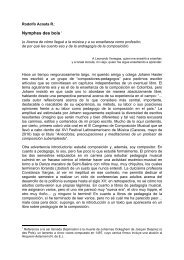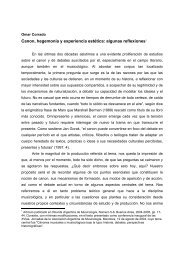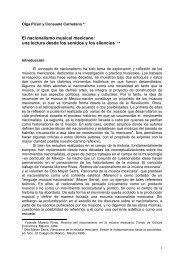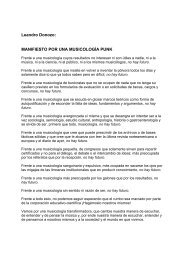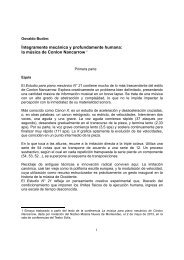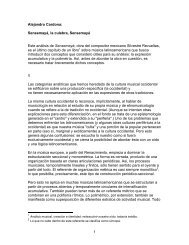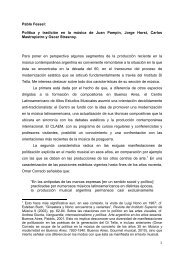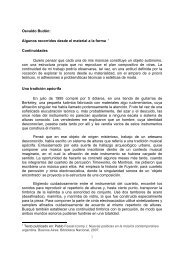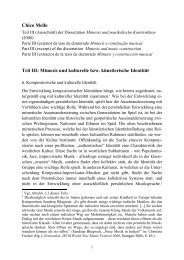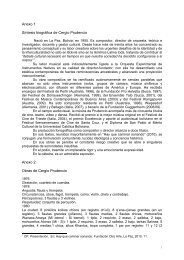Chico Mello 1
Chico Mello 1
Chico Mello 1
You also want an ePaper? Increase the reach of your titles
YUMPU automatically turns print PDFs into web optimized ePapers that Google loves.
nationalistic approach (which would not resist subjugation to “high culture”<br />
filtering and would dissolve these particles into a viscous and vain broth),<br />
bringing to maximum power the signs carried by each one.<br />
From Cage (via Schnebel) <strong>Chico</strong> inherited the silent and disciplined respect for<br />
the method – always new for each piece – as different for different purposes the<br />
tools shall be. All of this was done with a sense of humor – this category of high<br />
intelligence – as fine and light as 30 years ago in that samba circle at the pub<br />
from Minas. The multiculturalism of Berlin’s music scene and the feeling of<br />
deterritorialization generated by a life divided between Brazil and Germany<br />
resulted in nourishment. In the case of <strong>Chico</strong>’s work, a concern with relation to<br />
the other and specifically the other’s culture arose not through appropriation or<br />
digestion but through dialog. In pieces that promote this transcultural dialog like<br />
Upitu, Todo Canto, Cocar, Hui Liu and da minha janela, nothing ceases to be<br />
what it is and, at the same time, through processes of fragmentation, edition,<br />
superposition and even, as he says, “self-ethnology”, travel far from their original<br />
place of inception and send us to another floor, where the codes pulverize<br />
themselves and all conversations are possible, even between "the others" from<br />
outside and "the us" from within.<br />
By listening to <strong>Chico</strong>’s original and subtle work, one realizes that besides the<br />
effect of restoring our faith in the power of musical composition as a game of<br />
make-believe where everything is allowed, this work also makes clear that music,<br />
before being sound organization, is foremost the organization of thought, which<br />
can even express itself in sounds. The resulting and paradoxically free, yet<br />
strictly structured, music from <strong>Chico</strong> plays inside us a very delicate string and,<br />
above all, does not fear the vertigo of approaching a borderline which separates<br />
the logic of art from the non-logic of what surrounds us - that which insists on<br />
continuing to exist above and beyond our desire for control.<br />
Rio de Janeiro, March 2011



